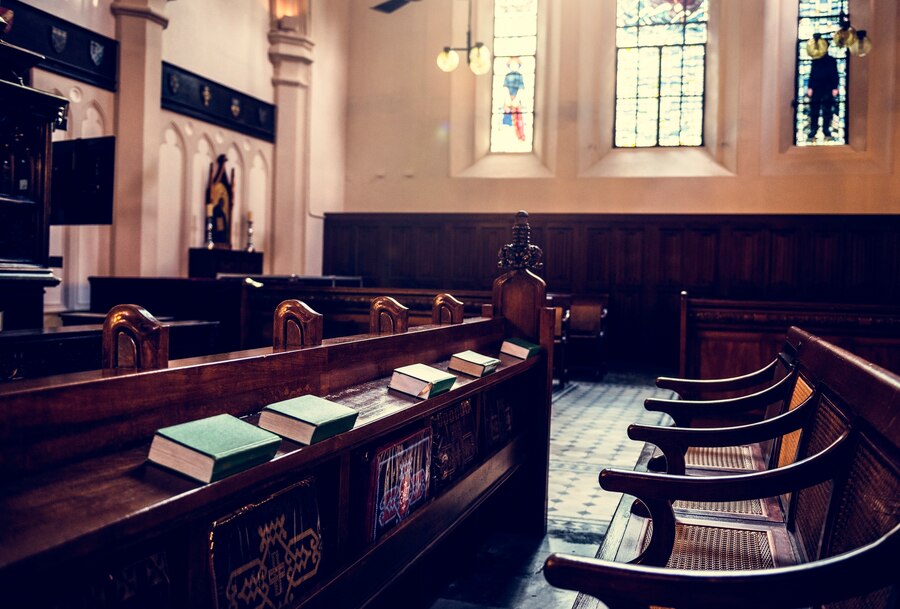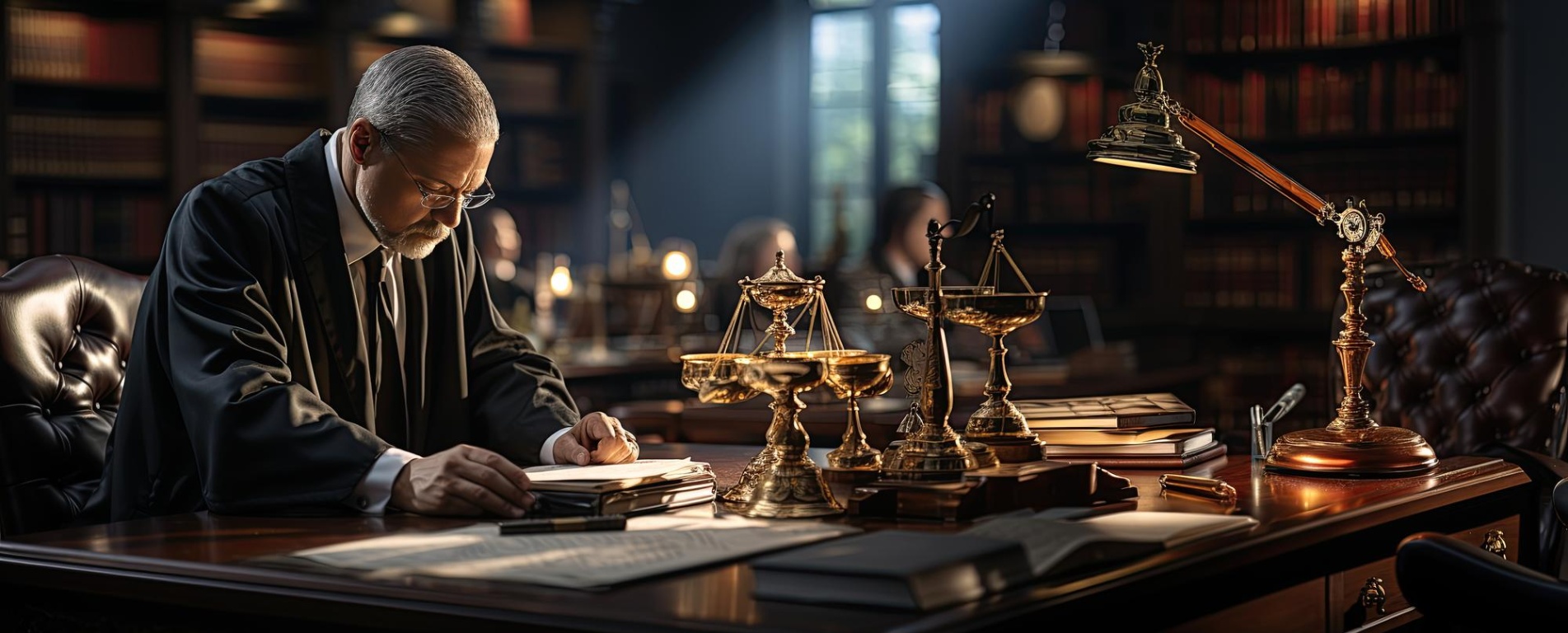The jury selection process in criminal defense is critical: it can profoundly sway trial outcomes.
With meticulous precision, lawyers select jurors; their aim is to assemble a panel receptive to their defense arguments.
This complex process, known as ‘jury selection’ or ‘voir dire’, entails a series of techniques.
Designed with acute insight, this complex process can unearth potential biases, preferences, and attitudes among prospective jurors.
Also, it magnifies the significance of the process within the realm of legal proceedings.
In this article, we explore the artistry of jury selection: how criminal lawyers employ techniques to craft persuasive panels.
Understanding The Significance Of Jury Selection:
In the trial process, jury selection is a crucial element.
So, attorneys on both sides strive not only to identify but also to eliminate potential jurors with biases or preconceptions. Why? Because biases can sway their judgment.
The objective: form an impartial and fair-minded jury capable of objectively evaluating presented evidence during proceedings.
Criminal lawyers acknowledge this truth.
As a result, the composition of the jury can significantly influence the verdict. Thus, it is imperative that the process of selecting a jury with nuance and strategy is crucial.
A) Preparation And Research:
Before initiating the jury selection process, criminal lawyers dedicate substantial time to researching and comprehending the demographics, background factors, and potential biases of potential jurors.
Such preparation proves instrumental. It enables these attorneys to tailor their approach during voir dire. FYI, it is a crucial stage where they identify individuals whose perspectives align with defense strategies.
B) Open-Ended Questions:
During voir dire, criminal lawyers frequently utilize open-ended questions.
This strategy aims to coax prospective jurors into divulging more about their beliefs, experiences, and attitudes.
Such inquiries trigger responses that offer a window into the thought processes of these potential decision-makers.
It is through this lens — this understanding of juror psychology — that attorneys can evaluate suitability for the case at hand.
C) Reading Non-Verbal Cues:
A person’s feelings or attitudes often become evident through non-verbal cues. Jurors’ body language, facial expressions, and other non-verbal signals.
This goes beyond verbal responses; it captures the close attention of a skilled criminal lawyer for additional insights.
D) Identifying Hidden Biases:
Not always do jurors explicitly express their biases. Criminal lawyers, however, employ a potent blend of questioning techniques and observational prowess to uncover these hidden predispositions.
This is crucial; it could significantly impact the juror’s ability to maintain impartiality.
E) Integration Of Jury Selection Software:
Criminal lawyers use specialized jury selection software to streamline the process of gathering and analyzing juror information.
These tools often allow lawyers to input data, including juror demographics and responses.
Moreover, it facilitates a more organized and comprehensive approach to decision-making during the selection process.
F) Adaptability To Changing Legal Landscapes:
The legal landscape is dynamic, and technology allows a criminal lawyer to adapt to changes swiftly.
Keeping abreast of legal developments, case precedents, and evolving societal norms is facilitated through digital resources, contributing to a more informed and agile approach to jury selection.
G) Social Media Scrutiny:
In the age of social media, criminal lawyers utilize online platforms to gain additional insights into potential jurors.
Scrutinizing publicly available information on social media profiles allows lawyers to identify personal interests, affiliations, and potential biases that could influence a juror’s perspective.
H) Virtual Voir Dire:
The use of virtual platforms for voir dire has become increasingly prevalent, especially in remote proceedings.
Criminal lawyers can conduct jury selection efficiently using video conferencing tools, allowing them to reach a broader pool of potential jurors and navigate logistical challenges.
I) Enhanced Presentation Of Case Strategies:
Technology aids criminal lawyers in presenting case strategies more effectively during voir dire.
Visual aids, multimedia presentations, and interactive tools can be employed to articulate complex legal concepts, ensuring that potential jurors have a clear understanding of the case’s nuances.
J) Security And Privacy Considerations:
While leveraging technology, criminal lawyers must also navigate security and privacy considerations.
Ensuring the confidentiality of juror information and safeguarding against potential cyber threats are integral to using technology in jury selection.
K) Challenges For Cause:
Should criminal lawyers believe that a prospective juror’s impartiality is compromised due to showing bias or prejudice, they can request a “challenge for cause.” To ensure a fair trial, it is crucial to successfully challenge such jurors for cause.
L) Peremptory Challenges:
Typically, criminal lawyers receive a limited number of peremptory challenges. Moreover, these enable them to dismiss potential jurors without having to provide an explicit justification.
They often strategically employ these ‘peremptories’ and remove individuals who may not display overt biases but are potentially detrimental to the defense.
M) Group Dynamics:
Considering the dynamics of the entire jury panel, lawyers understand how individual jurors might interact with one another.
This understanding helps craft a balanced and engaged group — one likely to conduct fair deliberations.
N) Cultural Sensitivity:
Criminal lawyers consider prospective jurors’ cultural backgrounds when cultural factors may influence them.
To guarantee that jurors comprehend and resonate with the case’s nuances, understanding these cultural subtleties is imperative.
O) Connecting With Jurors:
Criminal lawyers strategically strive to establish a subtle, yet impactful connection with prospective jurors.
They target building rapport during voir dire; this creates an environment in which the jurors feel comfortable expressing their views and enables a transparent understanding of potential biases.
This is an essential technique for graduate-level courtroom prowess.
P) Education And Simplification:
Criminal lawyers frequently employ voir dire to seize an opportunity: they educate jurors on legal concepts or illuminate the nature of the case.
By simplifying complex legal matters — a strategic move indeed — they ensure that jurors comprehend not only the intricate issues at hand but also make informed decisions accordingly; this is crucial for a fair trial.
How Is The Jury Selection Done For Criminal Cases?
In criminal cases, the process of selecting jurors is a key factor that requires the court to accord many matters due consideration to ensure a fair trial.
Jury board members are randomly selected through a strict process that grants the right to serve on the jury only to broad-minded, diverse persons.
Jury Selection Process is a key part of the judicial system in the United States, ensuring that criminal cases are handled fairly and impartially.
1. Summoning Jurors:
A Central Summoning Bureau picks a random sample of jurors from an electoral register to ensure that there is the greatest diversity of the community.
The jurors present their credibility to the court at a certain time, and are selected from the jury panel from which the final jurors will be chosen.
2. Composition Of The Jury:
The jury, consisting of 12 members, is selected from the jury panel by open voting in the courtroom.
The 1988 Defense’s Peremptory Challenge (a tool of influencing jury composition) has been banned, implying a more neutral and fair jury selection process.
3. Challenges:
Independent of each other, the prosecution and defense may object to jurors due to the cause for which an impediment to justice exists, e. g., if a juror is biased, not eligible for serving, or lacks the necessary experience of legal matters.
The factors that cause your campaign to face challenges, e. g., your personal prejudices or prior conduct, can be theoretical. Yet, in the real world, these limitations are only practical.
4. Random Selection:
For the most part, juror selection is random. So, during their selection, courts don’t consider their gender or ethnic origin to ensure the objectivity of their judgments.
Additionally, matters involving race can be handled fairly by employing special jury selection procedures to ensure ethnic diversity in the jury panel.
5. Role of Jurors:
The jury is the backbone of the justice system. The members are from the community and serve as a symbol of judicial impartiality.
Jury critics, on the other hand, say that they can end up with a patent understanding of complex legal matters, or, due to their personal bias, can be wrong.
6. Importance Of Voir Dire:
The voir dire process, the art of questioning potential jurors, is essential for a basis of jury selection and a connection between jurors, attorneys, and the client.
Voir dire plays a significant role in the foundation of any winning trial and should give pleaders the opportunity to explain the essence of a case and share their insights on the trial and the roles of jurors.
As the final sentence, trial by jury in criminal prosecutions involves an undoubtedly careful and meticulous process aimed at creating a true and uncontaminated jury.
Also, regarding the jury selection, it is crucial for a just system that conducting thorough voir dire is an essential element.
Criminal Lawyers Prioritize Justice During Jury Selection:
The techniques that criminal lawyers employ in jury selection are crucial to pursuing justice.
The artistry manifests — notably — in their ability; they navigate the voir dire process with precision, unearth potential biases, and shape a receptive jury panel for defense arguments.
By combining preparation, strategic questioning—and an acute understanding of human dynamics—criminal attorneys not only contribute but bolster fairness and integrity within our criminal justice system.
Not only is selecting a jury a legal skill, but it’s also an essential aspect: ensuring that each individual receives, before their peers, a fair trial.

















